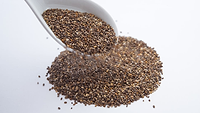EU Revises Regulations for Ethylene Oxide in Food Additives

Credit: wanderson91 via Pixabay
The European Commission has recently published revisions to its regulation on the use of ethylene oxide in food additives. The revisions have been made to provide clarity on the allowable levels of ethylene oxide present in food additives, as uncertainty surrounding regulation of the substance has led to enforcement challenges and recall incidents.
Ethylene oxide is a chemical substance with many applications, such for the sterilization of raw materials in food production. However, the substance has been identified as a carcinogenic, mutagenic, and reproductive toxin.
Citing Rapid Alert System for Food and Food Network (RASFF) notifications, the European Commission explains that there have been several recent incidents concerning the presence of ethylene oxide in food products from food additives that contain the substances. The difficulty of discerning the source of ethylene oxide that is present in foods—be it through the unlawful sterilization of food additives or any other reason—has made enforcement of the substance in food challenging.
To avoid future enforcement challenges and recall incidents, the European Commission has clarified that the presence of ethylene oxide, irrespective of its origin, is not authorized for all food additives. The Commission has also set a limit of 0.1 milligrams per kilogram for ethylene oxide, including 2-chloro-ethanol expressed as ethylene oxide, in certain additives that are treated with the substance.
Looking for a reprint of this article?
From high-res PDFs to custom plaques, order your copy today!





